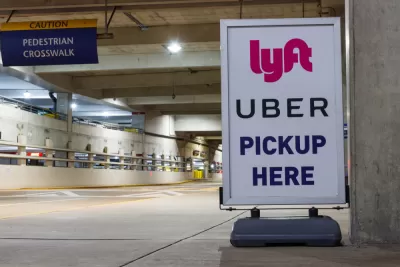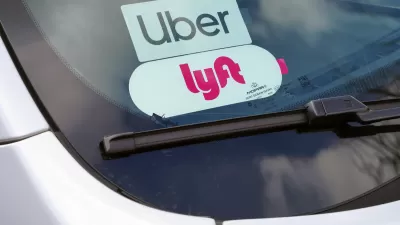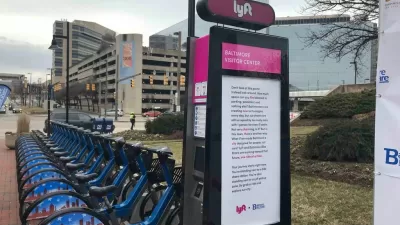High prices, labor issues, and legal blunders plague the transportation network companies, who are increasingly shifting to deliveries over rides.

In an article for Streetsblog Massachusetts, Christian MilNeil describes the state of transportation network companies (TNCs) in the Bay State. “In the two years leading up to the pandemic, ridership on Uber and Lyft had been growing explosively; an analysis of the companies’ own data estimated that their drivers logged a staggering 23 to 25 million miles in the City of Boston – roughly 8 percent of all the city’s traffic – during the month of September 2018.”
Now, more than two years after the pandemic began, ridership on these services has not recovered. “Like the state’s transit agencies, Uber and Lyft have reportedly struggled with driver shortages, and customers are reporting longer wait times and higher prices. During the pandemic, substantial numbers of its drivers also pivoted from transporting passengers to transporting take-out meals and other deliveries.”
MilNeil writes that “The company’s reported gross revenue from passenger bookings in the last three months of 2021 was down by 16 percent compared to the same period of 2019 (from $13.5 billion in 2019, to $11.3 billion in 2021), in spite of considerably higher prices.” Meanwhile, the “value of the company’s bookings from deliveries in the same time period had more than tripled (from $4.4 billion in 2019 to $13.4 billion in 2021).”
Uber and Lyft are also recovering from an expensive legal loss after the Massachusetts Supreme Judicial Court ruled that a ballot initiative proposed by the companies that sought to emulate California’s 2020 referendum classifying drivers as independent contractors was illegal.
FULL STORY: Uber and Lyft Ridership May Be Faring Even Worse Than Transit

Alabama: Trump Terminates Settlements for Black Communities Harmed By Raw Sewage
Trump deemed the landmark civil rights agreement “illegal DEI and environmental justice policy.”

Study: Maui’s Plan to Convert Vacation Rentals to Long-Term Housing Could Cause Nearly $1 Billion Economic Loss
The plan would reduce visitor accommodation by 25% resulting in 1,900 jobs lost.

Planetizen Federal Action Tracker
A weekly monitor of how Trump’s orders and actions are impacting planners and planning in America.

Waymo Gets Permission to Map SF’s Market Street
If allowed to operate on the traffic-restricted street, Waymo’s autonomous taxis would have a leg up over ride-hailing competitors — and counter the city’s efforts to grow bike and pedestrian on the thoroughfare.

Parklet Symposium Highlights the Success of Shared Spaces
Parklets got a boost during the Covid-19 pandemic, when the concept was translated to outdoor dining programs that offered restaurants a lifeline during the shutdown.

Federal Homelessness Agency Places Entire Staff on Leave
The U.S. Interagency Council on Homelessness is the only federal agency dedicated to preventing and ending homelessness.
Urban Design for Planners 1: Software Tools
This six-course series explores essential urban design concepts using open source software and equips planners with the tools they need to participate fully in the urban design process.
Planning for Universal Design
Learn the tools for implementing Universal Design in planning regulations.
Caltrans
Smith Gee Studio
Institute for Housing and Urban Development Studies (IHS)
City of Grandview
Harvard GSD Executive Education
Toledo-Lucas County Plan Commissions
Salt Lake City
NYU Wagner Graduate School of Public Service





























